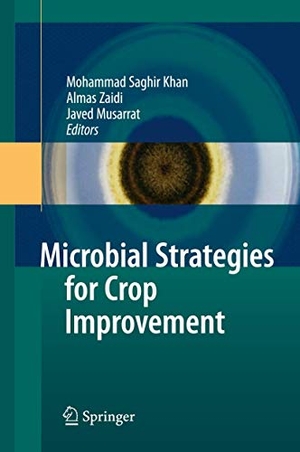Für statistische Zwecke und um bestmögliche Funktionalität zu bieten, speichert diese Website Cookies auf Ihrem Gerät. Das Speichern von Cookies kann in den Browser-Einstellungen deaktiviert werden. Wenn Sie die Website weiter nutzen, stimmen Sie der Verwendung von Cookies zu.
Cookie akzeptieren
Microbial Strategies for Crop Improvement
- Springer Berlin Heidelberg
- 2009
- Gebunden
- 380 Seiten
- ISBN 9783642019784
With an ever-increasing human population, the demand placed upon the agriculture sector to supply more food is one of the greatest challenges for the agrarian community. In order to meet this challenge, environmentally unfriendly agroch- icals have played a key role in the green revolution and are even today commonly recommended to circumvent nutrient de?ciencies of the soils. The use of ag- chemicals is, though, a major factor for improvement of plant production; it causes a profound deteriorating effect on soil health (soil fertility) and in turn negatively affects the productivity and sustainability of crops. Concern over disturbance to the microbial diversity and consequently soil fertility
Mehr
Weniger
zzgl. Versand
in Kürze